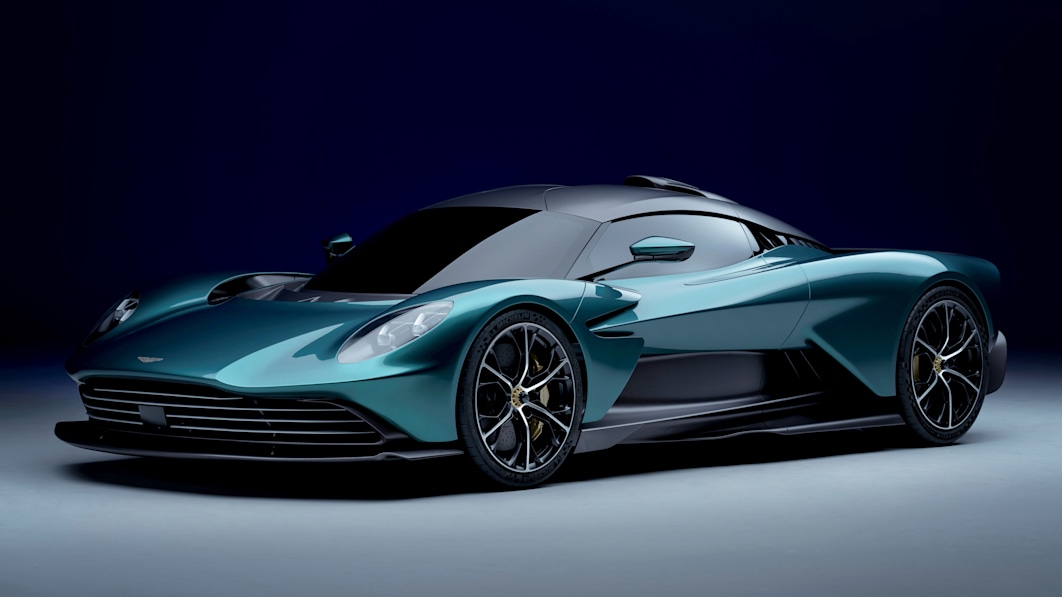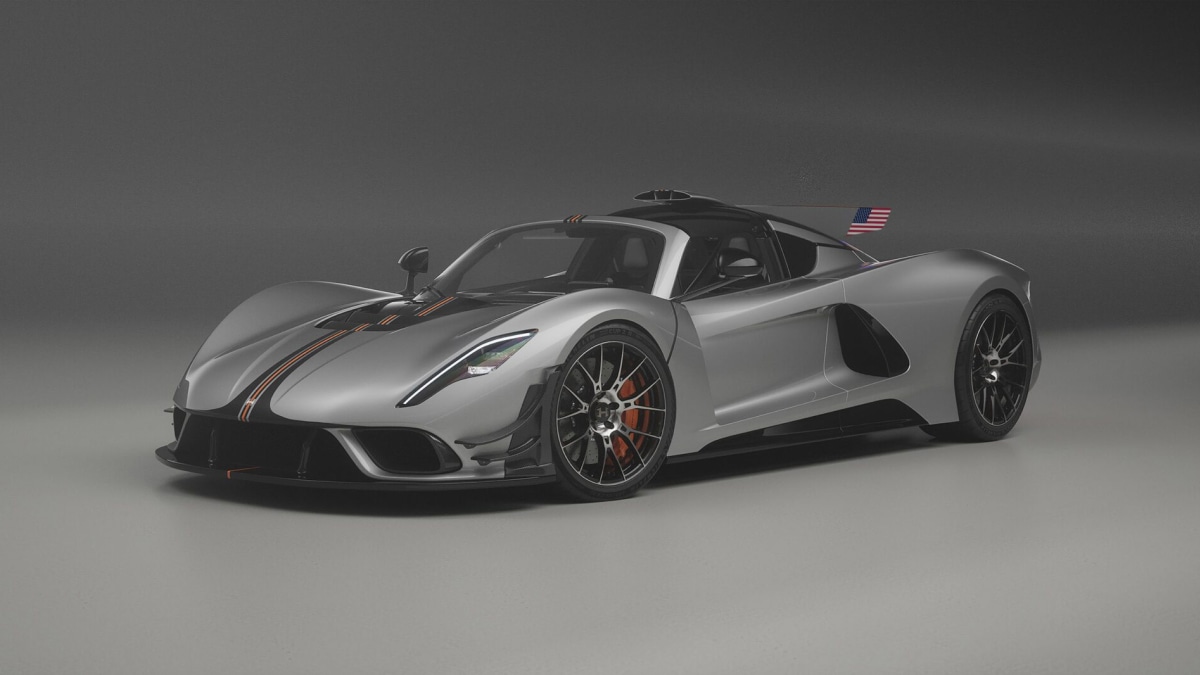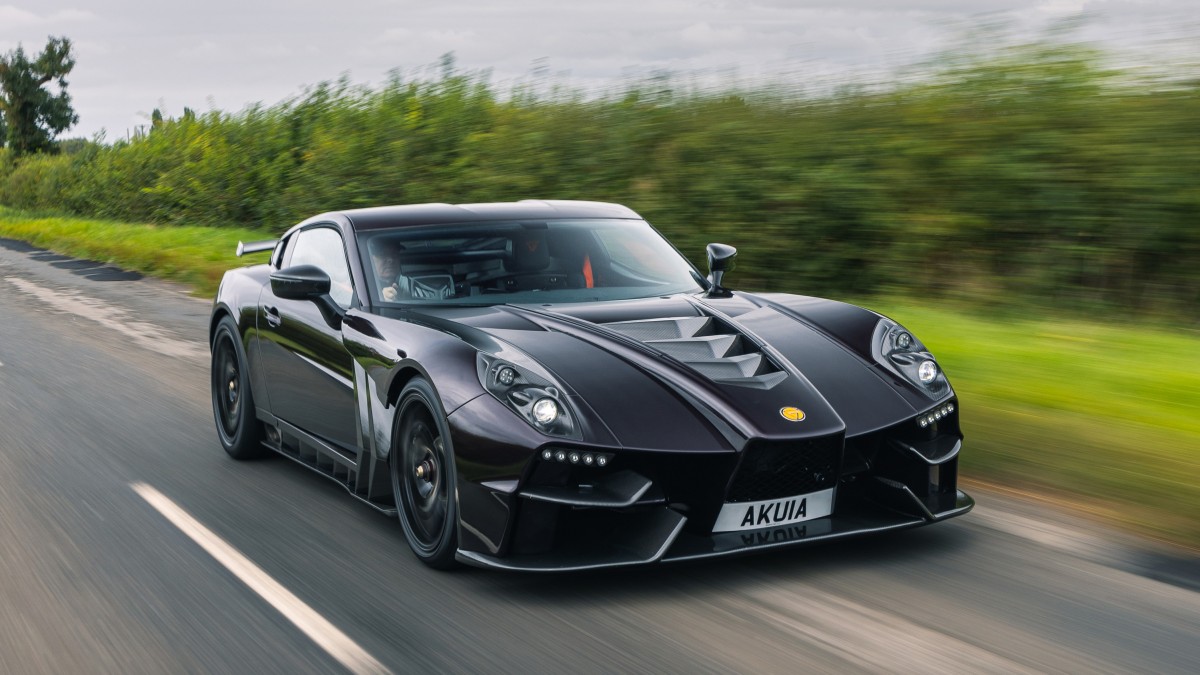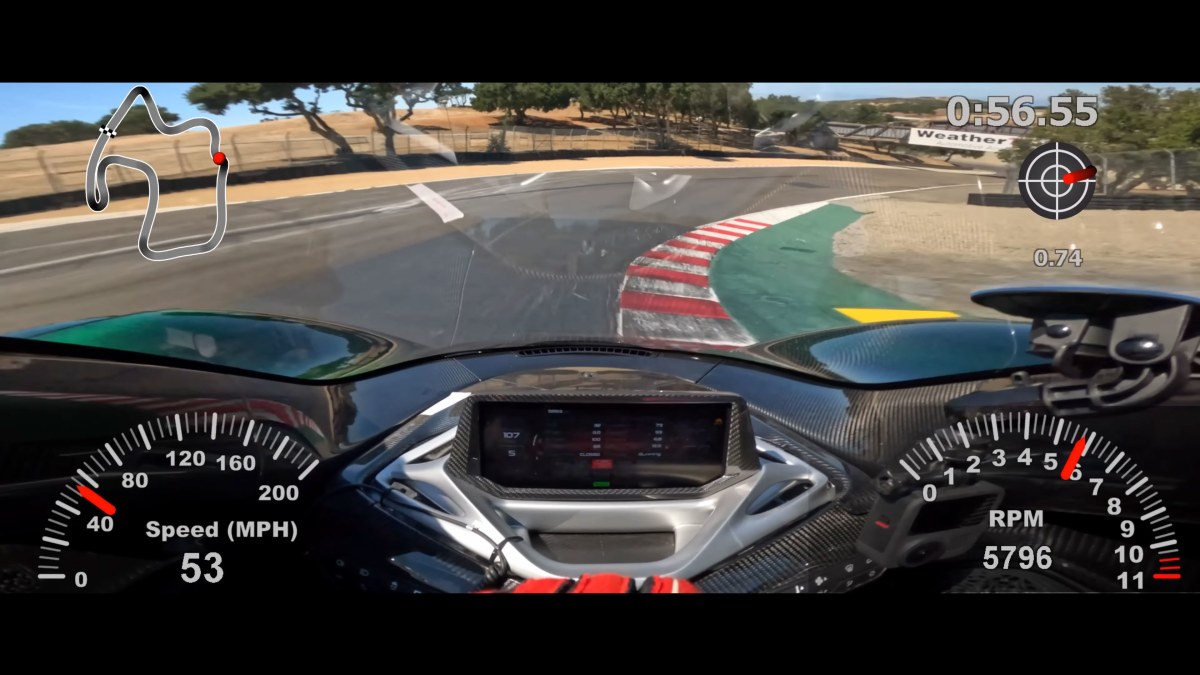The Aston Martin Valhalla is here. The company’s first series-production, mid-engine monster packs 937 plug-in hybrid horsepower in a lightweight carbon fiber chassis. This 217-mph hypercar is expected to run a 6:30 lap around the Nürburgring Nordschleife.
Originally, the hopeful Ferrari killer was referred to as Project 003. It was later renamed Valhalla and was on track to make its debut with an in-house, 3.0-liter turbocharged V6 – the first engine Aston developed in-house since a 5.3-liter V8 entered production in 1969. After Daimler increased its stake in the British luxury builder in 2020, those plans went out the window.
Rather than an in-house V6, the Valhalla will now be powered by a customized AMG Black series V8 plug-in hybrid powertrain. The twin-turbocharged, 4.0-liter flat-plane-öcrank V8 makes a respectable 740 horsepower all on its own. Two electric motors combine for an additional 201. That should add up to 941, not 937; we’re assuming a few stray horses drowned crossing the Great Sea of Unit Conversion.
The engine and motors are paired to a unique eight-speed dual-clutch automatic gearbox that has no physical reverse gear. Instead, the electric motors are run the opposite direction to simulate a backward gear, saving both weight and complexity in the gearbox. This is mated to an advanced torque vectoring all-wheel drive system can send 100% of available electric power to either the front or rear axles.
Aston Martin says it will do 0-60 in just 2.5 seconds on the way to a 217 mph top speed. Around town, it can also cruise in electric-only mode for up to 9 miles up to a speed of 80 mph, but we suspect you’ll deplete the battery much more quickly than that if you floor it up to its top EV speed.
“Preserving the essence of an exceptional concept car is vital when meeting the challenge of bringing it into production,” said CEO Tobias Moers. “With Valhalla not only have we stayed true to our commitment to build a world-beating supercar, but we have exceeded our original aims. The result is a pure driving machine — one which exists right at the cutting edge of performance and technology yet allows the driver to feel the emotion and thrill of complete connection and control.”
Its carbon fiber body construction makes it ultra-light (just 3,417 pounds, which is nothing for a PHEV) and super rigid. Its adaptive spring and damper suspension was developed with Multimatic, and like most modern supercars it offers adjustable ride height and a front-axle lift system for clearing troublesome obstacles. The aero was inspired by (and in some ways borrowed from) F1 and produces 600 kg (1,322 pounds) of downforce at 150 mph.
While this may be a series-production model, don’t expect to see too many of them around town. In fact, we wouldn’t be surprised if they’re all already spoken for. Stay tuned for more details as Aston Martin ramps toward production and reveals more details about the Valhalla’s driving experience.
Related video:




